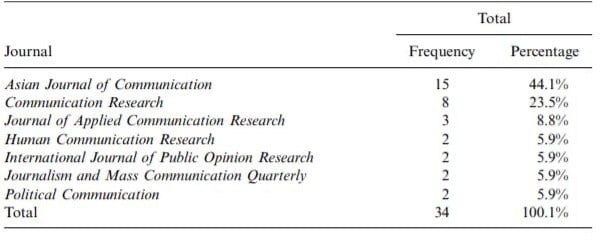Political Communication Essay
-
Osman Sirin
- December 25, 2022

Learning center
Political Communication Essay Example
Political Communication Essay: Executive Summary
In this assignment, levels of modernization in political communication have been examined. The paper has also presented insights into the background, the importance of political communication and campaigns, new political communication and campaign environment, and political communication research in Asian countries. In this direction, articles published in Asian societies between 1988 and 2008 have been thoroughly examined. According to the findings, the social science paradigm was the leading inquiry of political communication. Also, one can highlight the increasing importance of internet media and social media channels in terms of political communication and campaigns in Asian nations.
Introduction
Within the last decades, the world has probably experienced the most drastic social shifts in history, such as the emergence of the internet and social media. Accordingly, politics and political communication have been increasingly and gradually affected by these brand-new communication assets across the world (Chang, 2009; De Vreese, 2011; Joseph & Wasserstrom, 1990). In this assignment, levels of modernization in political communication have been examined. The paper presents insights into the background, the importance of political communication and campaigns, new political communication and campaign environment, and political communication research in Asian countries. In this direction, articles published in Asian societies between 1988 and 2008 have been analyzed. According to the findings, the social science paradigm was the leading inquiry of political communication. Also, one can highlight the increasing importance of internet media and social media channels in terms of political communication and campaigns in Asian nations.
Background
“Political communication concerns the creation and exchange of ideas and opinions between citizens, public officials, political institutions, and related entities, such as the media” (“Master’s in Communication,” 2019). Political communication is a way of discourse regarding international, national, local, and state political systems, and it also refers to how political communication might work as leverage for political gain and achieving political goals (“Master’s in Communication,” 2019; Dafydd & Cheng, 2009). In this sense, one can readily infer that individuals with political communication background or education may work in journalism, market research, community organization, foreign service, political consulting, and other fields.
On the other hand, according to Norris, political communication is an interactive process concerning the transmission of information among politicians, the news media, and the public (“Master’s in Communication,” 2019). However, the communication process stems directly from institutional institutions. That is, the process operates downwards from government institutions towards citizens, horizontally in linkages among political actors, and upwards from public opinion towards authorities (“Master’s in Communication,” 2019). More specifically, individuals are at the last step of the chain. The communication process starts hierarchically from the top of the institutions. After all, the politics itself can be considered an attempt of governing individuals, and similarly, the political communication aims to lead the populations.
The Importance of Political Communication and Campaigns
In general, a political campaign is designed to influence the ideas and approaches of a specific target group. In today’s world, electoral campaigns also refer to the political campaigns in democratic states, during which the representatives of population groups and decisions regarding referendum are defined. For instance, one can readily observe many election campaigns in the United States, in the UK, Germany, and Asian countries where exist different ideologies among people. Accordingly, it is evident that political campaigns have existed as long as citizens have been informed about the election process since the 1800s (“Boundless Political Science,” 2019; Kim & Hyok, 2009). In other words, a political campaign is the act of convincing citizens about an idea, an ideology, or election promises, which requires a great deal of effort to collect people with the same goal.
Gathering citizens for the same goal necessitates a communicative, ideological, and financial condition. That is, a group of people need to share the same political belief and ideology, and they need to devote themselves to these ideologies or the will of governing people in the future. Besides, these people need to have an official institution like corporate identities, such as the political party. In this direction, one can argue that establishing political parties require a great deal of attention and money. Similar to companies, these institutions need a public image or buildings where people can gather and share ideas. At this point, relying on political campaigns are significant as they create opportunities for parties to find funding options. Citizens across the country can fund political parties. Also, parties can get funding from governments in accordance with the related regulations. Therefore, one can conclude that political campaigns are extremely significant for financial aspects and conveying ideological messages.
New Political Communication and Campaign Environment
“A multi-layered communication environment exists for election campaigns. The media system is transitioning from a broadcast associated with traditional media where general-interest news items are disseminated to the mass public through a narrowcasting model where carefully crafted messages target discrete audience segments” (Owen, 2017, New Communication). Accordingly, the evolution of the political campaign is shown in Figure 1.

Figure 1. Phases of new media in political campaigns (Owen, 2017)
On the other hand, one can readily infer that the new media channels have been increasingly influential within the last decades. In this sense, parties, campaign organizations, and grassroots movements, along with media organizations, should be responsive to these gradual challenges in the new media environment, especially due to the emergence and availability of the internet across the world. Accordingly, Figure 2 shows the comparable statistics between the main sources of election news and the popularity of media assets since 1992.

Figure 2. Main sources of political campaign and news
Source: Pew Research Center, November 13, 2008: Pew Internet and American Life Project, March 17, 2011
Upon analyzing Figure 2., one can readily claim the comparative influence of television, newspaper, radio, magazine, and internet on political communication and campaigns. That is, there is an increasing trend towards the internet in both presidential elections and midterm elections. More specifically, Fig. 2 shows the gradual increase of the internet’s influence on political campaigns since 1992. On the contrary, one can readily observe the drastic and gradual decrease when it comes to mainstream television, newspaper, radio, and magazine influence on political communication and campaigns. In this direction, political communication and campaigns should keep up with the new requirements of the modern world and adapt themselves to the new social media and internet environment.
Political Communication in Asia
Similar to other parts of the world, Asia has a long tradition of political communication and political campaigns. “According to Chu (1988), the field of communication studies was introduced to Taiwan in the mid-1950s, into Hong Kong in the mid-1960s, and into Mainland China in the early 1980s” (as cited in Willnat, 2004). Similarly, other Asian countries, such as Korea and Japan, also have well-established political communication that has contributed to what we know about Asian communication in terms of politics and political gains.
Nevertheless, although there are increasing demand and interest on political communication studies in Europe and the United States, “there is little substantive analysis of the role of communication in the political process of nations outside of the developed West, especially the politics of Asian nations” (Kluver, 2004, p. 117). Subsequently, one can readily infer that there is merely a cursory understanding of Asian communication in terms of politics among scholars across the world. Arguably, the mechanics and characteristics of Asian political communication are often misunderstood by scholars from the West (Kluver, 2004). That is, West often assume that “certain philosophical stances that arise from the political traditions such as the inherent value of self-expressive speech, and the inviolate legal status of all humans” (Kluver, 2004, p. 118). However, one can directly infer that there is a drastic difference between the West and East mindset, especially in terms of individualism and collectivism, which may reflect upon the efficiency and variety of communication. In this sense, I would like to argue that scholars from the West are not likely to have a thorough perspective when analyzing the political discourse and communication of the East. In other words, as Lucien Pye argued (as cited in Kluver, 2004), although authority tends to exist in every nation or group across the world, every nation has its own way of reflecting and interpreting the creation and the sustainability of the authority, depending mostly on the cultural background and lifestyles of nations that have already been shaped across centuries.
In order to have a better understanding of political communication in Asian countries, content and survey analysis are among the most feasible methods when it comes to Asian communication research (Lees-Marshment, 2009; Mancini et al., 1996; Norris, 2004). First, one needs to understand “the prevailing paradigm of new media and political communication research in Asia” (Lo & Wei, 2014, p. 269). According to a research, a total of 34 articles have been reviewed, and the number of social science articles far outnumbered the number of critical articles (Lo & Wei, 2014; Owen, 2017). In this sense, one can readily highlight the importance of the social science paradigm of inquiry regarding political communication in Asia between 1998 and 2008, as shown in Figure 3.

Figure 3. Number of articles published between 1988 and 2008 in SSCI communication journals in Asia (Lo & Wei, 2014)
One should as well dig into the most studied new media for political communication research in Asia to have a better understanding of the current status. In this sense, Figure 4 indicates that the most studied medium was the internet, of the total articles followed by Cable television, and social media, respectively. In this sense, one can argue that similar to western nations, and the internet is as well the newest form of political communication in Asian countries.

Figure 4. Type of new political communication media studied in Asian countries (Lo & Wei, 2014).
Identifying issues and trends regarding political communication in Asia is a significant topic and also an important element of this research. Accordingly, as mentioned earlier, the social science paradigm covers the majority of the research in communication journals between 1988 and 2008. Therefore, one can readily stress the dominance of the social science paradigm in political communication research in Asian countries.
Conclusion
Political communication is a way of discourse regarding international, national, local, and state political systems, and it also refers to how political communication might work as leverage for political gain and achieving political goals. Also, a political campaign is the act of convincing citizens about an idea, an ideology, or election promises, which requires a great deal of effort to collect people with the same goal. In today’s world, parties, campaign organizations, and grassroots movements, along with media organizations, should be responsive to these gradual challenges in the new media environment, especially due to the emergence and availability of the internet across the world. Similar to other parts of the world, Asia has a long tradition of political communication and political campaigns. In this direction, one should as well dig into the most studied new media for political communication research in Asia to have a better understanding of the current status. After all, according to findings, the science paradigm was the leading inquiry of political communication in Asia. Also, one can highlight the increasing importance of internet media and social media channels in terms of political communication and campaigns in Asian nations.
References
Boundless Political Science. (2019). Retrieved May 17, 2020, from https://courses.lumenlearning.com/boundless-politicalscience/chapter/the-modern-political-campaign/
Chang, Ching-ching. (2009) “Political Communication in Taiwan,” in Political Communication in Asia, 72-92. (EBOOK)
De Vreese, Claese. (2011) “Campaign Communication and the Media,” Comparing Democracies 3, 118-140.
Esherick Joseph and Jeffrey Wasserstrom,. (1990) “Acting out Democracy: Political Theatre in Modern China,” in Popular Protest and Political Culture in Modern China, 28-66. (BLE)
Fell, Dafydd and Isabelle Cheng. (2009) Testing the market oriented model of political parties in a non-western context: The case of Taiwan, Global Political Marketing, 175-188.
Kim, Sung Tae and Hyok Nam Kwon. (2009) “Political Communication in South Korea: Looking back for the Future,” in Political Communication in Asia, 176-190. (EBOOK)
Lees-Marshment, Jennifer. (2009) “Global Political Marketing” in Global Political Marketing (London: Routledge, 2009) 1-15. (BLE)
Lo, V.-H., & Wei, R. (2014). New media and political communication in Asia: a critical assessment of research on media and politics, 1988–2008. Asian Journal of Communication, 20(2), 264–275. doi: 10.1080/01292981003693435
Master’s in Communication. (2019). Retrieved May 17, 2020.
Mancini, Paolo and David Swanson. (1996) “Politics, Media and Modern Democracy: Introduction,” in Politics, Media and Modern Democracy: An International Study of Innovations in Electoral Campaigning and Their Consequences, David Swanson and Paolo Mancini Ed (London: Praeger, 1996), 1-28 and 247-276 (BLE)
Norris, Pippa, “Campaign Communication,” in Comparing Democracies 2: New Challenges in the Study of Elections and Voting, Lawrence LeDuc, Richard Niemi and Pippa Norris Ed, (London: Sage, 2004), 127- 147. (EBOOK)
Owen, D. (2017, August 24). New Media and Political Campaigns. Retrieved May 17, 2020.
Willnat, Lars. (2004). Political Communication in Asia: Challenges and Opportunities.
Williams, Joshua and Douglas Miller, Netizens Decide: A look at party campaigning online,’ in Pekkanen, Reed and Scheiner eds, Japan Decides 2014: 168-174.
Contents
Recently on Tamara Blog

Essay on Animal Farm by Orwell – Free Essay Samples
“Animal Farm” by George Orwell is a literary masterpiece that tells the story of a group of farm animals who rebel against their human farmer and establish a socialist community based on the principles of equality and mutual respect (Orwell, 1945). However, over time, the pigs who lead the revolution gradually become corrupted by power and begin to oppress and exploit the other animals, ultimately turning the farm into a totalitarian state.

Essay on Cyberbullying – Free Essay Samples
Bullying is an aggressive behavior that is intentional and repeated, aimed at causing harm or discomfort to a person, and often takes place in social environments such as schools, workplaces, and online platforms. Cyberbullying is a relatively new form of bullying that has emerged with the widespread use of technology and the internet. Cyberbullying refers to bullying behaviors that occur online or through electronic means, such as social media, text messages, and emails.

Essay on Nature vs. Nurture – Free Essay Samples
The debate over nature versus nurture has been a longstanding topic of interest among psychologists and other scholars. The two concepts, nature and nurture, are frequently used to explain human development and behavior.

Lord of the Flies Essay – Free Essay Samples
Veterans have played a critical role in the history of the United States, serving their country in times of war and peace. Despite their sacrifices, many veterans face significant challenges, including physical and mental health issues, homelessness, and unemployment.

Why Veterans Are Important – Free Essay Samples
Veterans have played a critical role in the history of the United States, serving their country in times of war and peace. Despite their sacrifices, many veterans face significant challenges, including physical and mental health issues, homelessness, and unemployment.

Free Essay: To Kill a Mockingbird
“To Kill a Mockingbird” is a Pulitzer Prize-winning novel written by Harper Lee in 1960. The story is set in the fictional town of Maycomb, Alabama, during the Great Depression, and is narrated by Scout Finch, a young girl who grows up in the town with her brother Jem and father Atticus. The novel explores themes of racism, prejudice, and injustice through the trial of Tom Robinson, a black man accused of raping a white woman, and the subsequent events that follow.